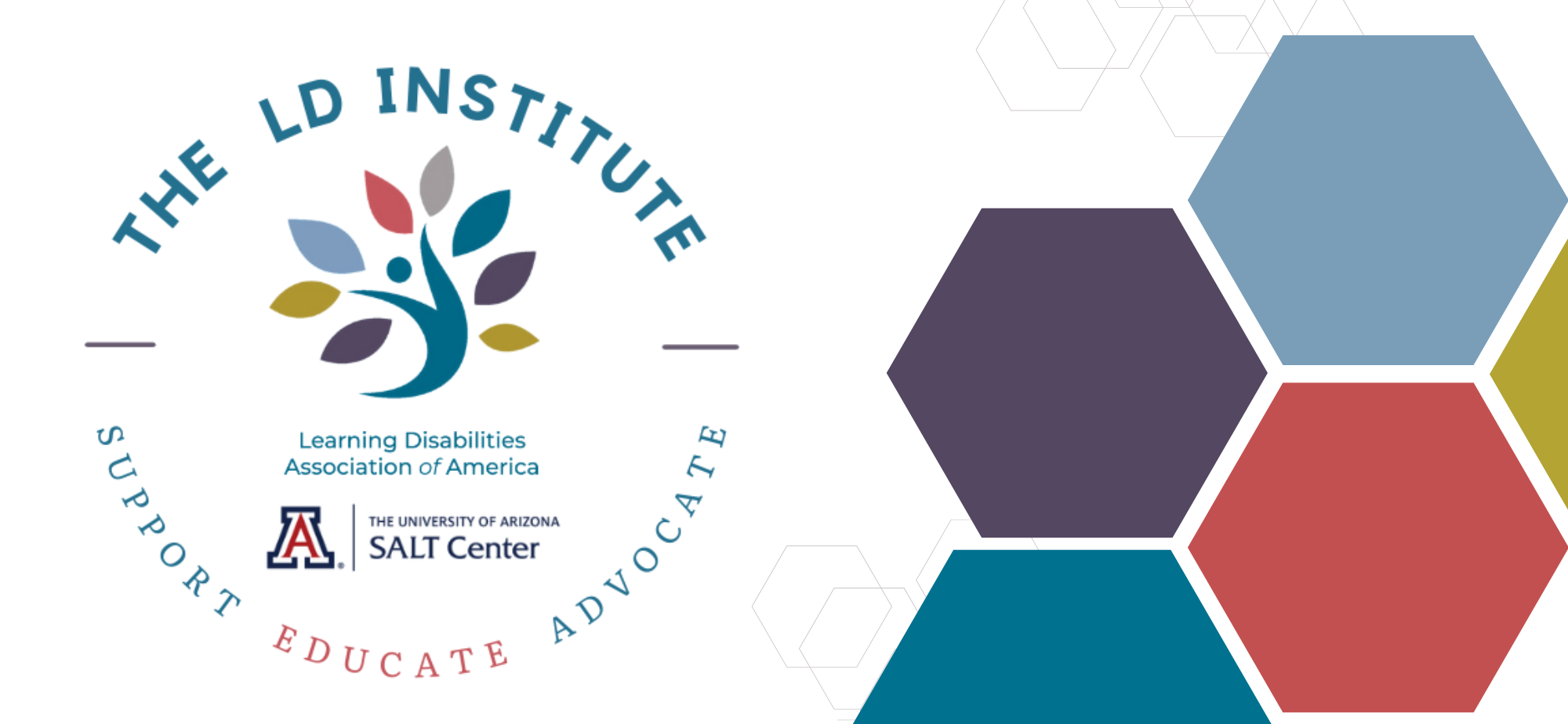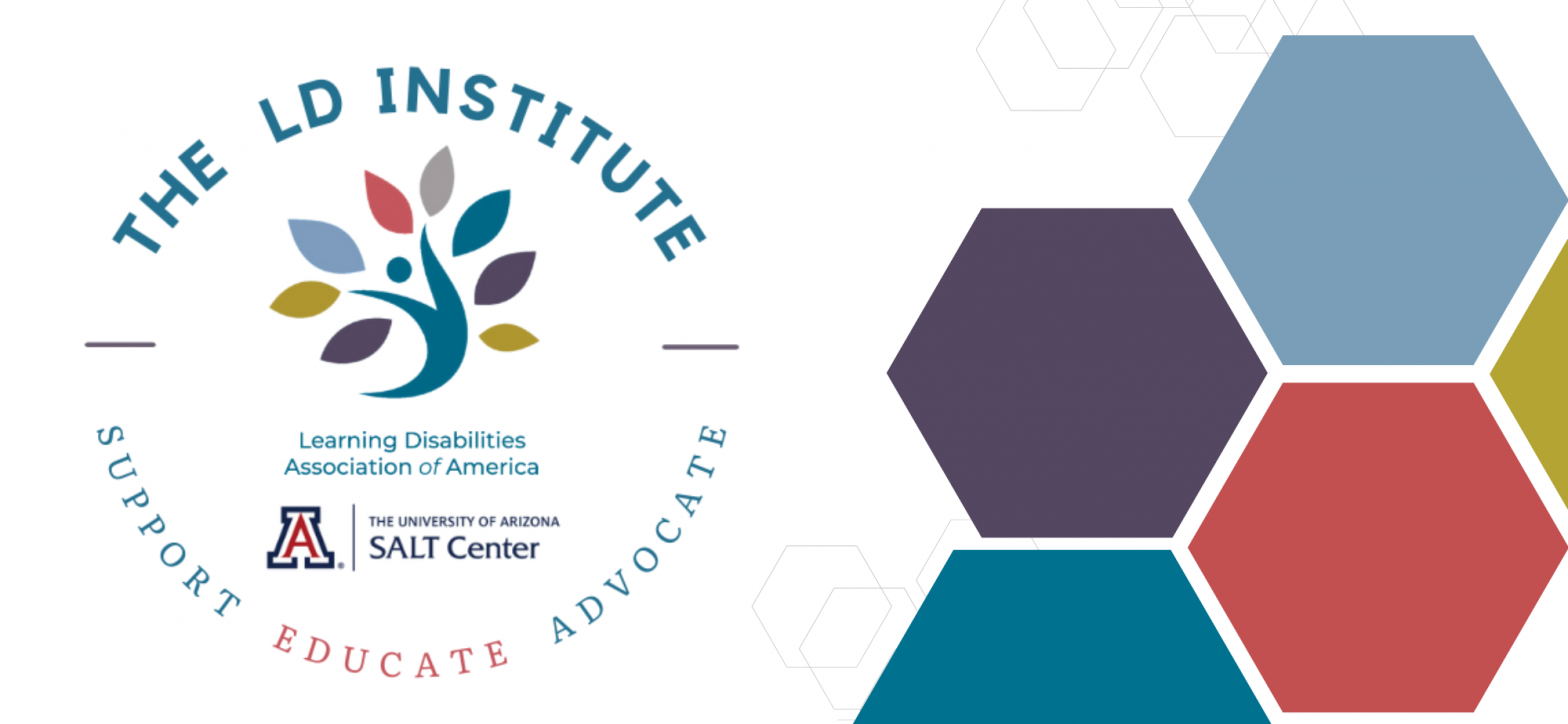
Providing education and resources aligned to the most current research on best practices in the field of learning disabilities to ensure accurate identification and appropriate intervention, and to inform federal and state policies affecting individuals with learning disabilities.
The LD Institute was created in partnership with the University of Arizona SALT Center to address the growing needs of children and adults with disabilities for high quality services by offering parents, professionals, and policy makers a trusted source for evidence-based information to improve practice.
The LD Institute is working to leverage its professional advisory board and national network to offer continuing education, LD Certificate Programs, publications for professionals and parents, advocacy training, and issue briefs for policymakers and legislators.
Specific Learning Disability Evaluation Principles and Standards
The purpose of these new, interdisciplinary Principles and Standards is to provide a guide for best practices in the evaluation and identification of SLD. The standards outline a process professionals can use to develop a comprehensive evaluation and written report that describe: the nature of the specific learning disability; the area and levels of impairment; subject areas and personal areas of strengths; cultural and linguistic diversity of the student; and specific considerations for practitioners to develop individualized interventions designed to meet the unique academic, linguistic, social, emotional, and behavioral needs of the student.
The SLD Principles and Standards presented in this document are the product of a yearlong interdisciplinary, research-based collaboration between professional representatives/ambassadors from the fields of school psychology, cognitive psychology, speech and language pathology, special education, literacy, mathematics education, and medicine. It is our hope that scholarly discourse around these research-informed Principles and Standards will lead to an increased capacity to meet the needs of students with SLD, especially for those students who are culturally, racially, and linguistically diverse.



